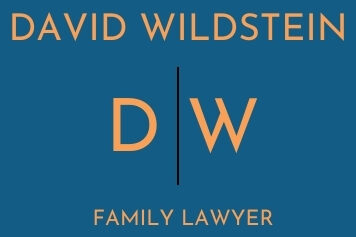New Jersey Divorce Lawyer
A Trusted Advocate for Justice
New Jersey Divorce Lawyer David M. Wildstein is a preeminent family law attorney with over four decades of experience helping families through divorce. Clients receive individualized attention and tailored representation to meet their specific needs and objectives.
Mr. Wildstein is a seasoned advocate when you need help with complex matters, including annulments, divorce, asset distributions, business valuations, appeals and prenuptial agreements, and more in Middlesex, Monmouth, Somerset, Union, Essex, Passaic, Bergen, and Ocean Counties.
Uncontested Divorce
In an uncontested divorce, both spouses reach an agreement to resolve all disputed issues such as child custody, child support, spousal support, equitable distribution of property and counsel fees. Since all issues are settled there is no need for a trial. The Court will deem the case as settled and will grant an uncontested divorce, normally on the grounds of irreconcilable differences for a period of six months or more and no reasonable prospect of reconciliation.
Grounds for divorce based on fault are rarely presented to a Court because in most cases it has very little total impact on the right to receive or defend alimony or the division of marital assets.
Mediation
In a New Jersey divorce, the equitable distribution of assets involves the fair division of marital property between spouses. Marital property typically includes assets and debts acquired during the marriage, while separate property usually refers to assets owned by each spouse before the marriage or acquired through inheritance or gift during the marriage.
The equitable distribution process aims to divide marital property fairly, although not necessarily equally, considering various factors such as the duration of the marriage, each spouse’s financial circumstances, contributions to the marriage, and the standard of living established during the marriage.
“Equitable distribution” is not another way of saying “50/50 split.” Instead, the court strives to achieve an asset and debt distribution that it deems fair and just based on the case’s specific circumstances. The court has the discretion to divide the marital assets and debts in any manner that it determines is fair, although not necessarily equal, based on the following criteria:
- the duration of the marriage;
- the age and physical and emotional health of the parties;
- the income or property brought to the marriage by each party;
- the standard of living established during the marriage;
- any written agreement made by the parties before or during the marriage concerning an arrangement of property distribution;
- the economic circumstances of each party at the time the division of property becomes effective;
- the income and earning capacity of each party, including education background, training, employment skills, work experience, length of absence from the job market, custodial responsibilities for children, and the time and expense necessary to acquire sufficient education or training to enable the party to become self-supporting at a standard of living reasonably comparable to that enjoyed during the marriage;
- the contribution by each party to the education, training or earning power of the other;
- the contribution of each party to the acquisition, dissipation, preservation, depreciation or appreciation in the amount or value of the marital property, and the contribution of a party as a homemaker;
- the tax consequences of the proposed distribution to each party;
- the present value of the marital property;
- the need of a parent who has physical custody of a child to own or occupy the marital residence and to use or own the household effects;
- the debts and liabilities of the parties;
- the need for creation, now or in the future, of a trust fund to secure reasonably foreseeable medical or educational costs for a spouse or children;
- the extent to which a party deferred achieving their career goals; and
- any other factors the Court may deem relevant.
You need a seasoned New Jersey divorce attorney like David Wildstein in your corner to help negotiate the best possible outcome from asset and debt distribution discussions.
LGBTQ Divorce
Same-sex marriage became legal in New Jersey in 2013, but few attorneys can handle the complex nuances of an LGBTQ divorce. These couples enjoy equal recognition under the law that governs divorces. From property division and alimony to child custody and support, same-sex couples are entitled to the same legal rights and protections afforded to heterosexual couples. However, some issues can be more complex, particularly when non-biological parent’s rights and custody is involved.
Family lawyer David Wildstein is a pioneer in New Jersey family law and eminently qualified to help you resolve unique challenges during an LGBTQ divorce.
Contact NJ Divorce Lawyer David Wildstein
A New Jersey divorce can be simple or fraught with difficulty and unresolved issues. David Wildstein is an experienced NJ Divorce Lawyer who can help you in tense negotiations, highly charged court hearings, and other legal matters throughout your divorce. Contact New Jersey Family Law Attorney David M. Wildstein to schedule a private meeting at his Red Bank or Woodbridge offices to discuss your case and explore your legal rights.
